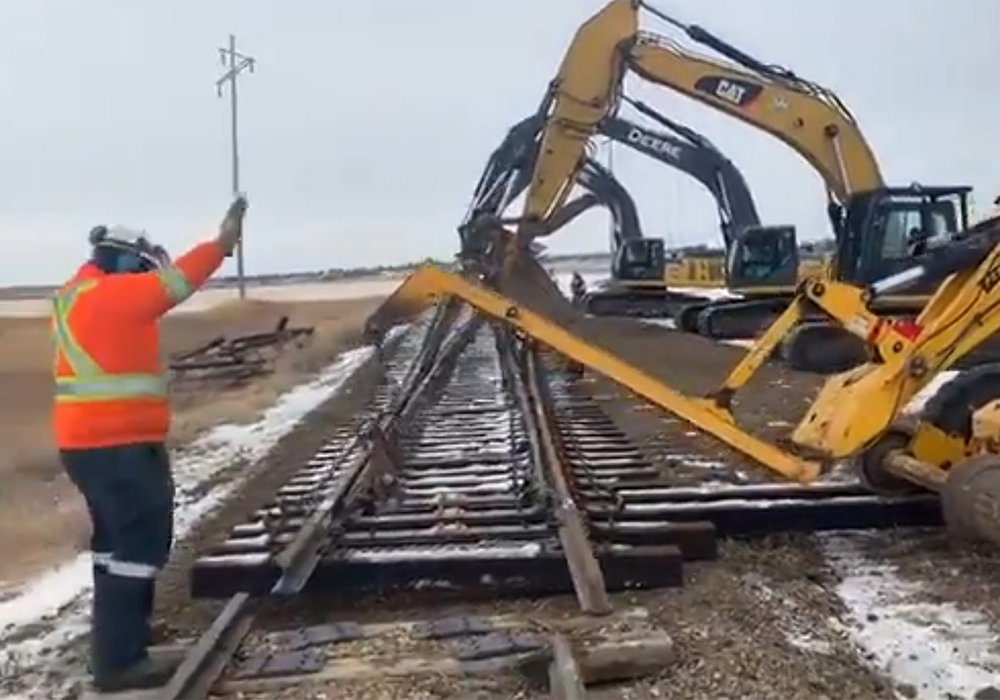A privately owned rail transloading facility at Weyburn, Sask., is expected to open in January.
Carter Stewart, operations general manager for Weyburn Industrial Transload, said the required 6,500 sq. feet of rail line has been built and after some test runs and ensuring the computer system works, the facility will open.
It’s designed to transfer commodities off or on to rail that might otherwise have difficulty accessing that mode of transport.
Stewart said the facility will be able to handle a variety of commodities, from aggregate to oil to fertilizer but that will depend on what the company’s customers need.
Read Also

Farmers asked to keep an eye out for space junk
Farmers and landowners east of Saskatoon are asked to watch for possible debris in their fields after the re-entry of a satellite in late September.
“We’re open to anything,” he said. “So if a lumber company from Maple Creek calls and says, ‘can we truck lumber to you and get it to California?’ I’d say sure.”
He said he has had calls from all over about possible business.
There could be opportunities to do rail car cleaning, repair and inspection, as well as locomotive service.
Stewart, along with his father Blair, operated Stewart Southern Railway, a short line based in Fillmore that runs from Stoughton to Regina, since its inception 10 years ago but neither is still involved in the day-to-day operation.
He said they moved oil, propane, grain and fertilizer.
“Railway is a challenging, challenging industry,” he said.
The finishing touches on phase 1. Five families with ideas and dedication to make things work. @jasonauctioneer @CarterStewart86 @davinmainil @JoshuaMainil @calvin_tracey #weyburn #sask pic.twitter.com/F2t5FEwcbp
— Weyburn Industrial Transload Inc (@Weyburnrail) October 27, 2020
Thinking about diversification opportunities led him to tour a transload facility in Windsor, Ont.
“(That company) was doing one car of oil and one car of diesel fuel and lumber and steel and scrapping cars, and I called my dad and said, ‘we’ve got to try this on the SSR,’ ” Stewart said.
But location was an issue and so they contacted potential partners and “drew it up on a napkin.”
Stewart declined to say how much the new venture cost the partners.
“What I tell people is in the old days, to build rail, it cost $1.5 million a mile,” he said.


















